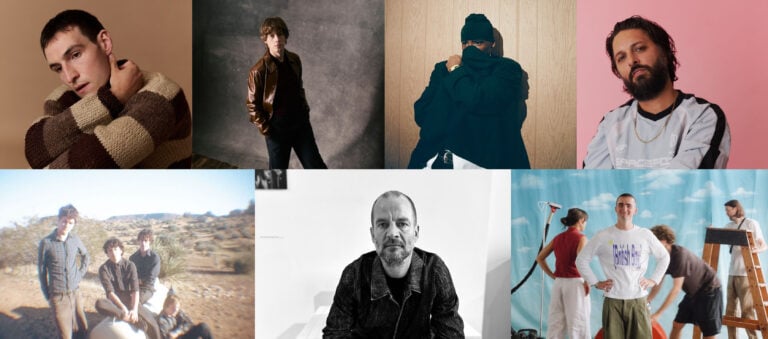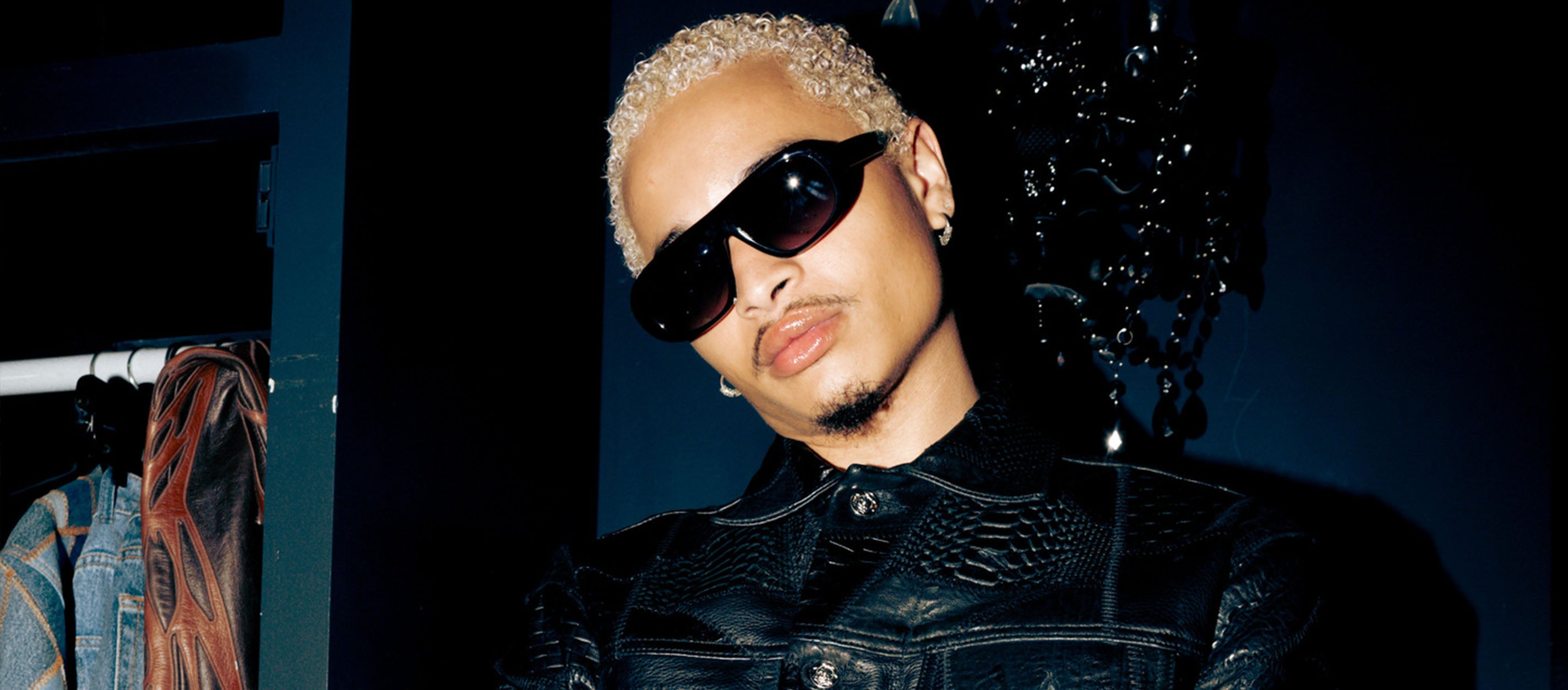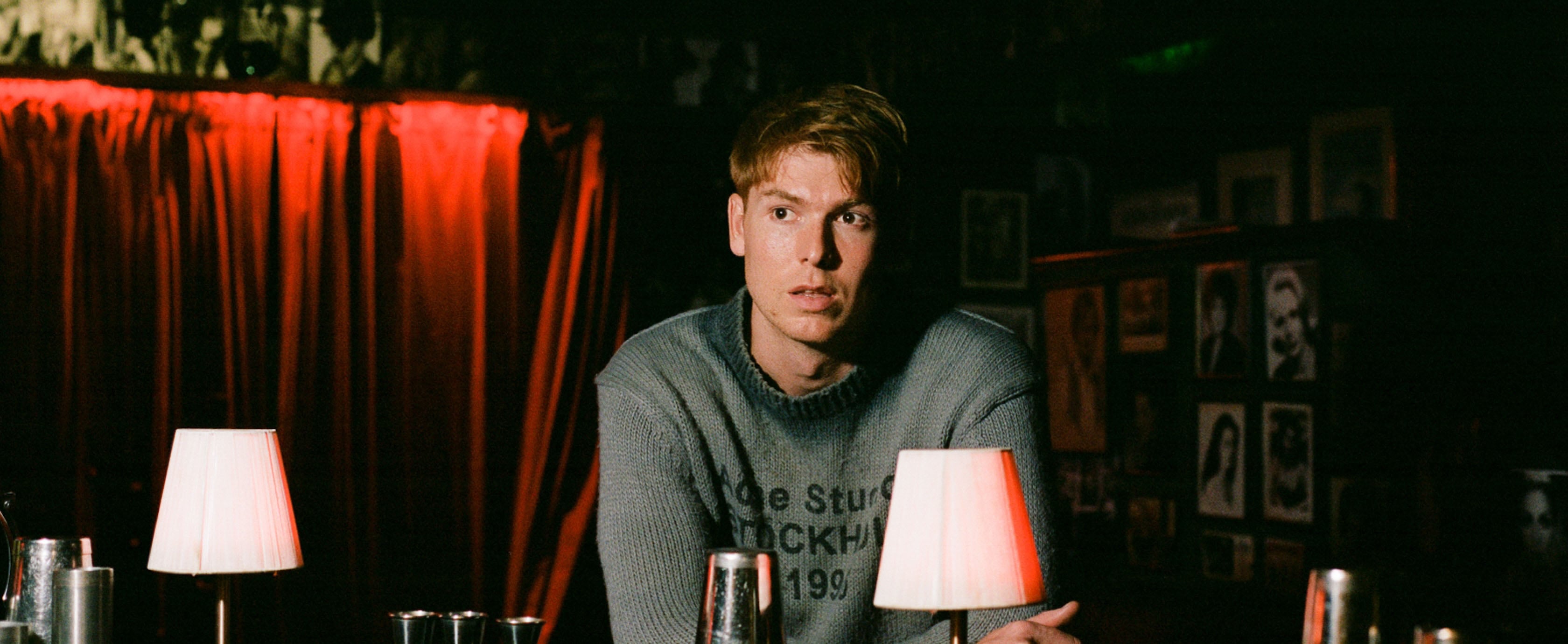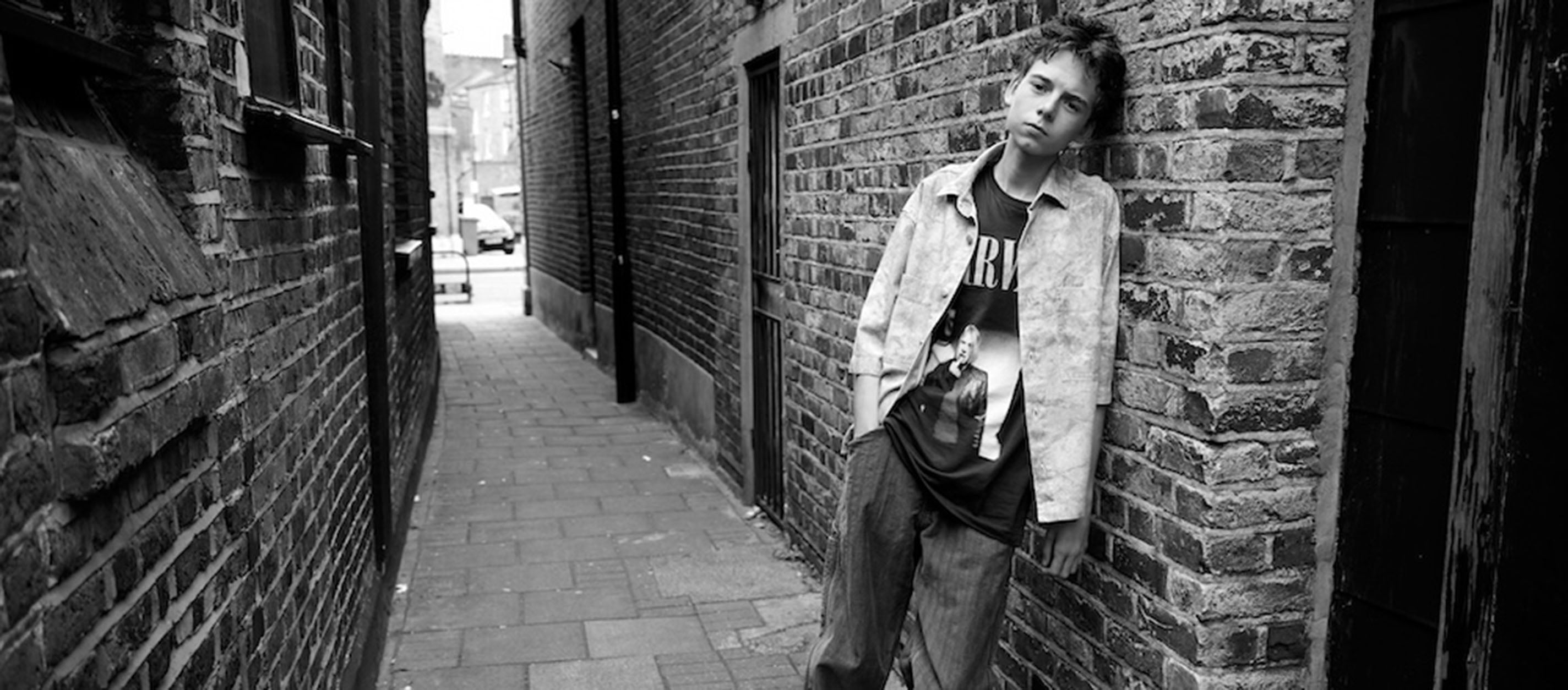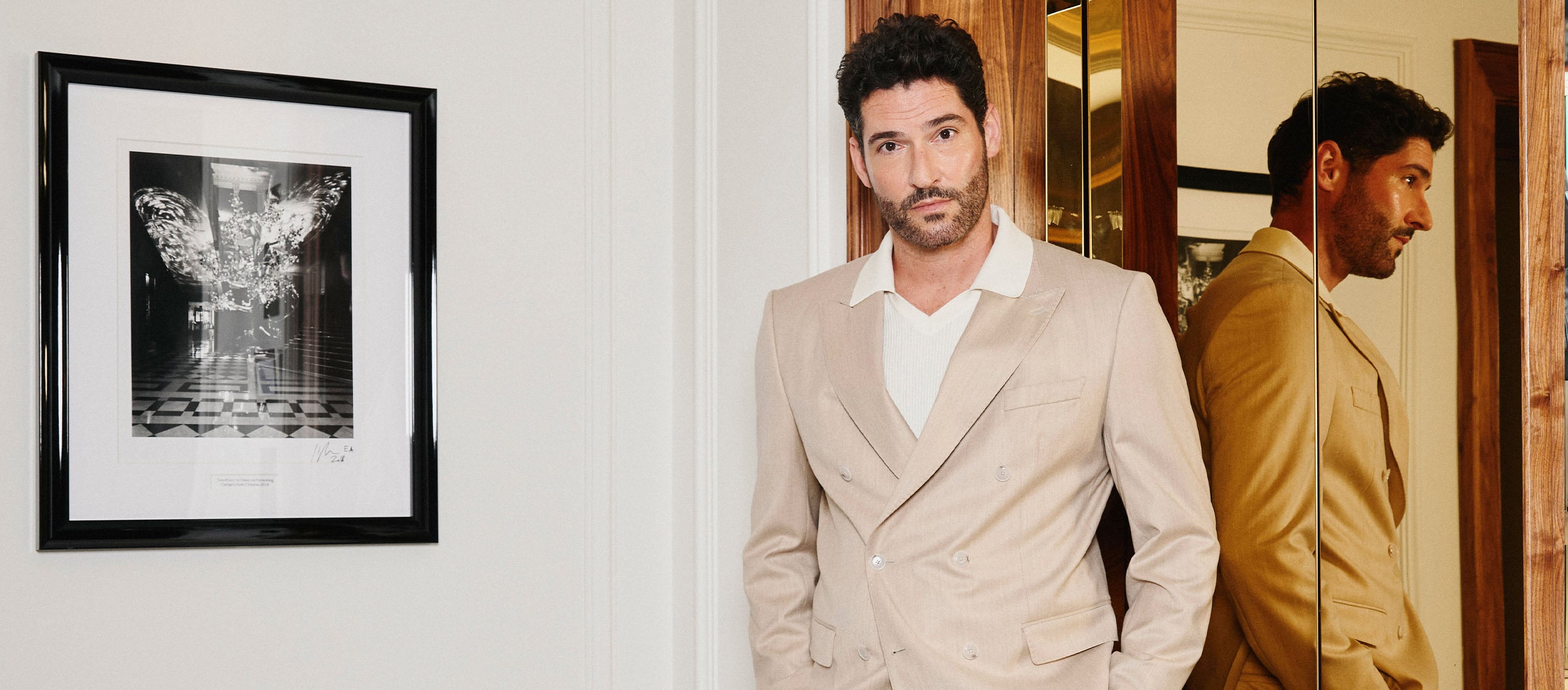Sharing the screen as power-imbalanced cellmates in tumultuous prison drama Wasteman, you wouldn’t think Tom Blyth and David Jonsson’s conviviality, offscreen, is the type that fills a room. But their bond goes even deeper – driven by mutual adoration and a genuine willingness to show up for each other, they’ll even re-do interviews – similar to this one – if they have to.
This is not Tom Blyth and David Jonsson’s first attempt at having a tête-à-tête on the record. The previous try from the friends and now co-stars in Cal McMau’s frenzied prison drama Wasteman was a two-and-a-half-hour-long false start. “I feel like I’ve got a responsibility here…” Jonsson confesses at now being the custodian of Blyth’s Man About Town cover interview.
Jonsson is known best for 2023 Peckham-set rom-com delight Rye Lane, HBO finance drama Industry and last year’s interstellar epic, Alien: Romulus. He’s also a conscientious conversationalist, and there’s no shortage of chemistry between him and 30-year-old, Nottingham-hailing actor Blyth. “You and I walk into a room and our friends and colleagues go, ‘Not you two again together,’” Blyth laughs. However, the last time they tried to commit a chat to the annals, they made a simple but catastrophic mistake: they forgot to record the audio. “It’s not a good look for us, mate,” Jonsson reflects ruefully. And so today, you could say, is their opportunity to redress.
But they also have a lot to get through. Four films, to be specific, starring Blyth are set to meet audiences in the months that follow this sit-down in early October. First up is Plainclothes, Carmen Emmi’s sparse, absorbing romantic thriller exploring police entrapment in gay men’s cruising spots in 90s New York. Blyth plays undercover cop Lucas, who, upon meeting target Andrew (Russell Tovey), is forced to confront his own repressed desires.
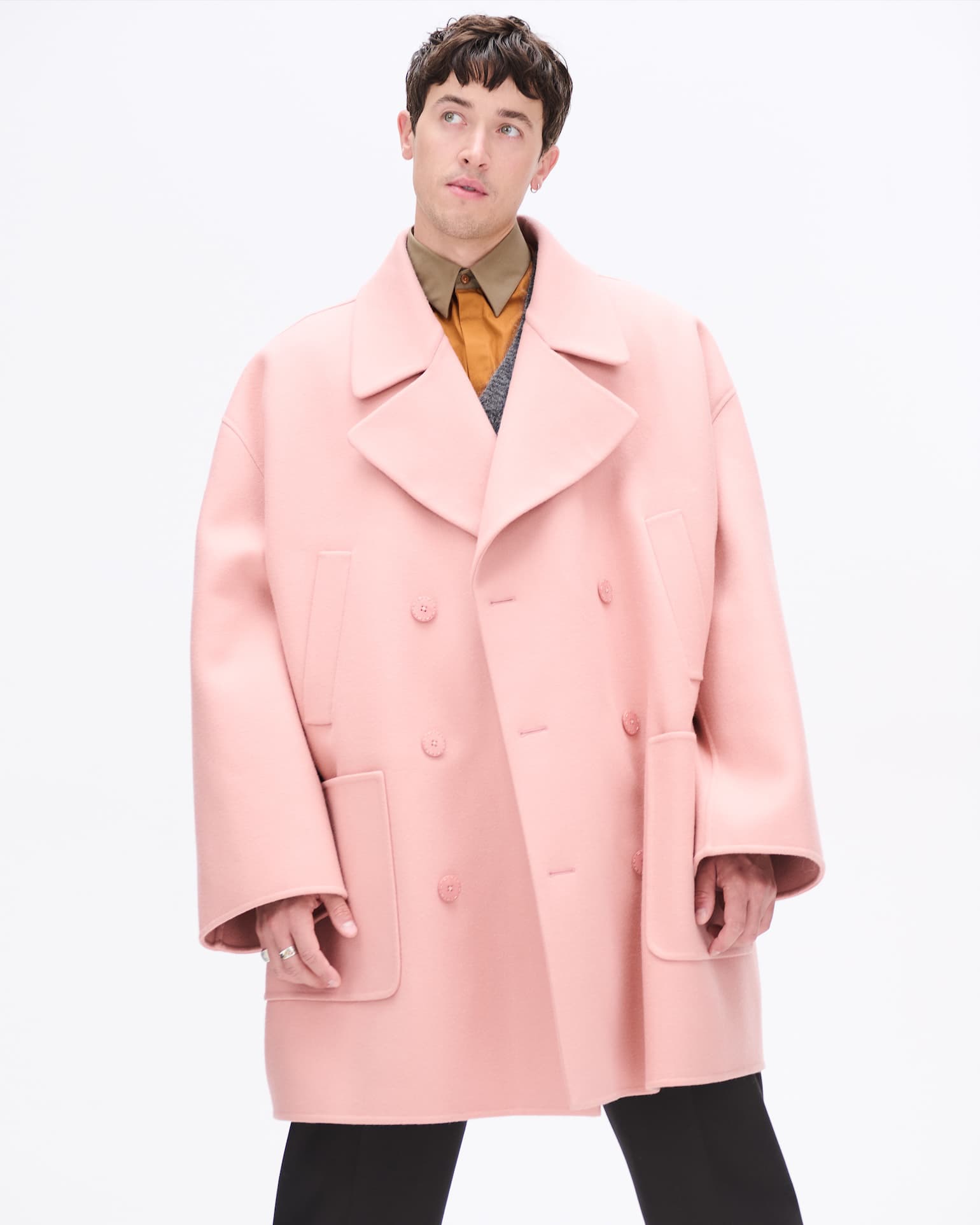
Tom wears jacket, cardigan, shirt & trousers FENDI
Plainclothes is the kind of time-stopping watch that, for many actors, alone, would signal a seminal professional year. But Wasteman follows – the directorial debut from McMau that could convince the most hardline punitives that the need for prison reform isn’t just pressing, but an emergency in 2020s Britain. It sees Blyth play Dee, a ruthless, short-fused newcomer who threatens to derail the parole chances of his low-profile cellmate Taylor (Jonsson) on the approach of his hearing. Blyth was tasked with bulking up in a tight three-week window following Plainclothes‘s production. However, due to the budget constraints of independent project Wasteman, it was an unorthodox regime, minus the personal trainer or nutritional plans of Hollywood. “I just started eating salty, protein-heavy food,” he says. “I was never going to have Men’s Health magazine being like, ‘Here’s [Tom Blyth’s] Wasteman prep.’”
The formidable presence of Dee onscreen indicates that Blyth’s expeditious transformation was successful, however. The film is a vital if challenging watch, and the emotional impact weighed as heavily on its stars as Dee looms over those who cross him. “People ask how you choose [projects],” Blyth tells Jonsson. “And sometimes it’s just about going, ‘What does my fucking soul need?’” Following Wasteman, some levity was in order. “I needed to do something fun.” Enter, People We Meet on Vacation – upcoming beach-set Netflix flick based on Emily Henry’s New York Times best-seller of the same name, that gives Blyth his first dip into rom-com waters. But, after that, “I was like, ‘Oh my God. Now I need to do something meaty that I can stick my teeth into,’” Blyth smiles. Thankfully, storied French filmmaker Clare Denis called to enlist Blyth for The Fence – an adaptation of the Bernard-Marie Koltès play exploring European erasure of Native culture in colonial-era West Africa. Blyth stars alongside Hollywood veteran Matt Dillon, How To Have Sex lead Mia McKenna-Bruce and Black Panther and Casino Royale’s Isaach de Bankolé.
For now, however, he is on a seemingly rare break from filming, at home – although he is cinema-bound later to watch Jonsson’s other new release, The Long Walk, from Francis Lewis, the director of Blyth’s 2023 breakout role in The Hunger Games: The Ballad of Songbirds & Snakes. The pair have around 45 minutes together. “We could literally talk for hours, but we shouldn’t, because they’ve got to actually form some sort of an interview out of this,” Blyth cautions. So the stopwatch is on, and so too, resoundingly, is the tape recorder.
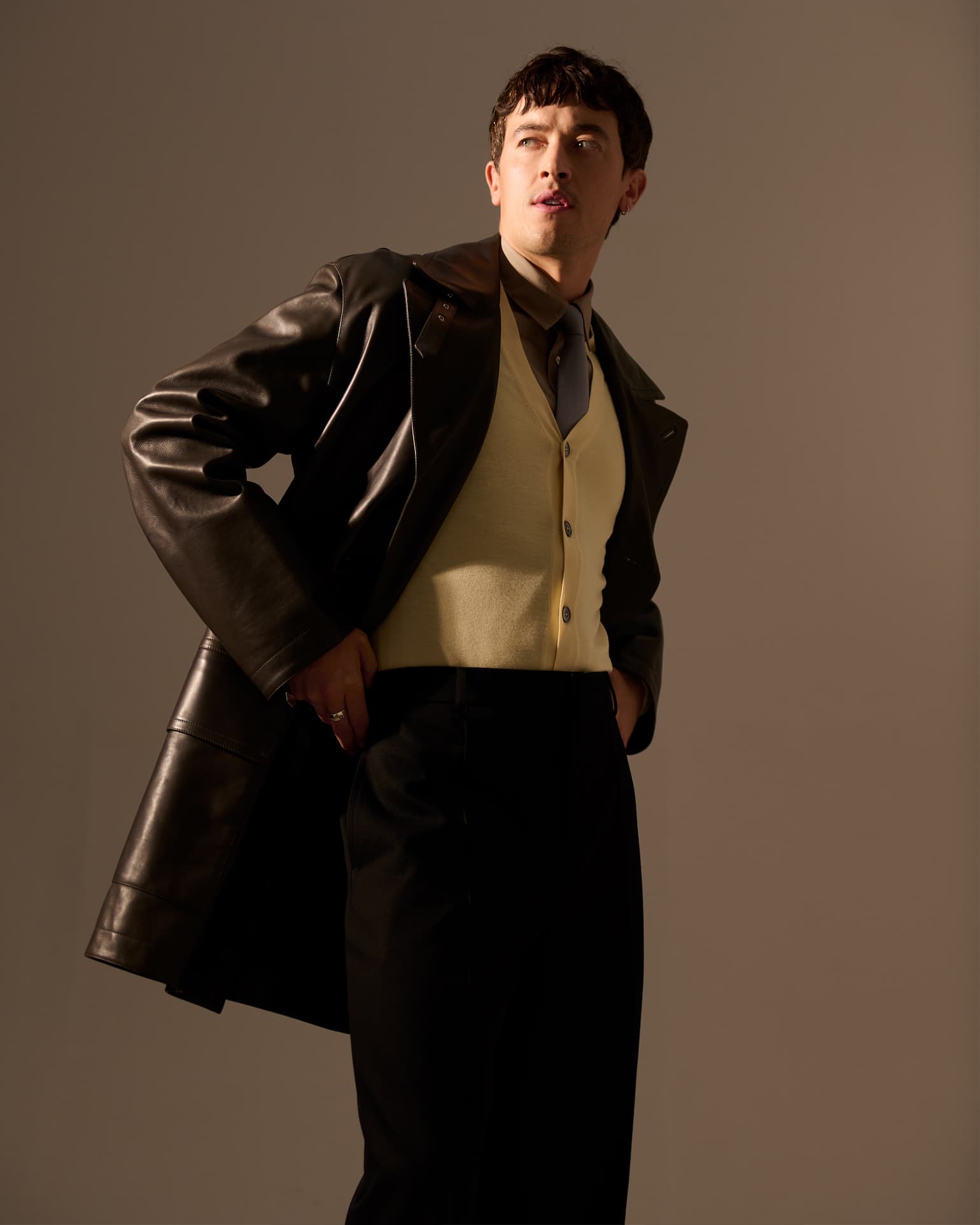
Tom wears jacket, cardigan, shirt, trousers & tie HERMES
David Jonsson: Alright, mate.
Tom Blyth: Yes, mate. How are you? You just got back from LA yesterday?
DJ: I did. I was on a 10-hour delayed flight, which was horrible and made worse by feeling that I had to be stuck in a lounge, and I wanted to go for a walk, but then I went for a walk, and it just got weird with people.
TB: It got weird, as in people started recognising you?
DJ: Yeah. I’m sure you have this as well. You know when you’re like, ‘I’m just going to go and buy a fucking burger,’ and then all of a sudden, you’re reminded that people kind of recognise you.
TB: I was just talking about this yesterday, actually. When you think it’s going to happen, it doesn’t, and then you let your guard down, and then all of a sudden, you get swamped or mobbed, and you’re like, ‘Oh shit.’
DJ: Yeah, it’s got to be the way, though. Tom, I feel honoured that I get a chance to talk to you for this wonderful publication. I think part of the reason I love you and we really get on is because you’re very normal.
TB: A salt of the earth scumbag.
DJ: Yeah. I wasn’t going to say that in this publication, but…
TB: No, let’s call it what it is, mate.
DJ: What I really mean is that you’re one of those people who just get on with the job. So when we’re talking about being recognised, it’s funny because if you were to change, like if you were to walk around with security, I just don’t think you’d be Tom [anymore].
TB: Yeah, I guess, man. It goes hand in hand with what we do. If you’re making stuff that is resonating with people and that people are actually going to see, then you end up with people appreciating it and wanting to say hello, which is awesome.
DJ: Let’s rewind. We have worked together, but also we are really, really good mates, partly because we got introduced by our agents and we’ve got on ever since.
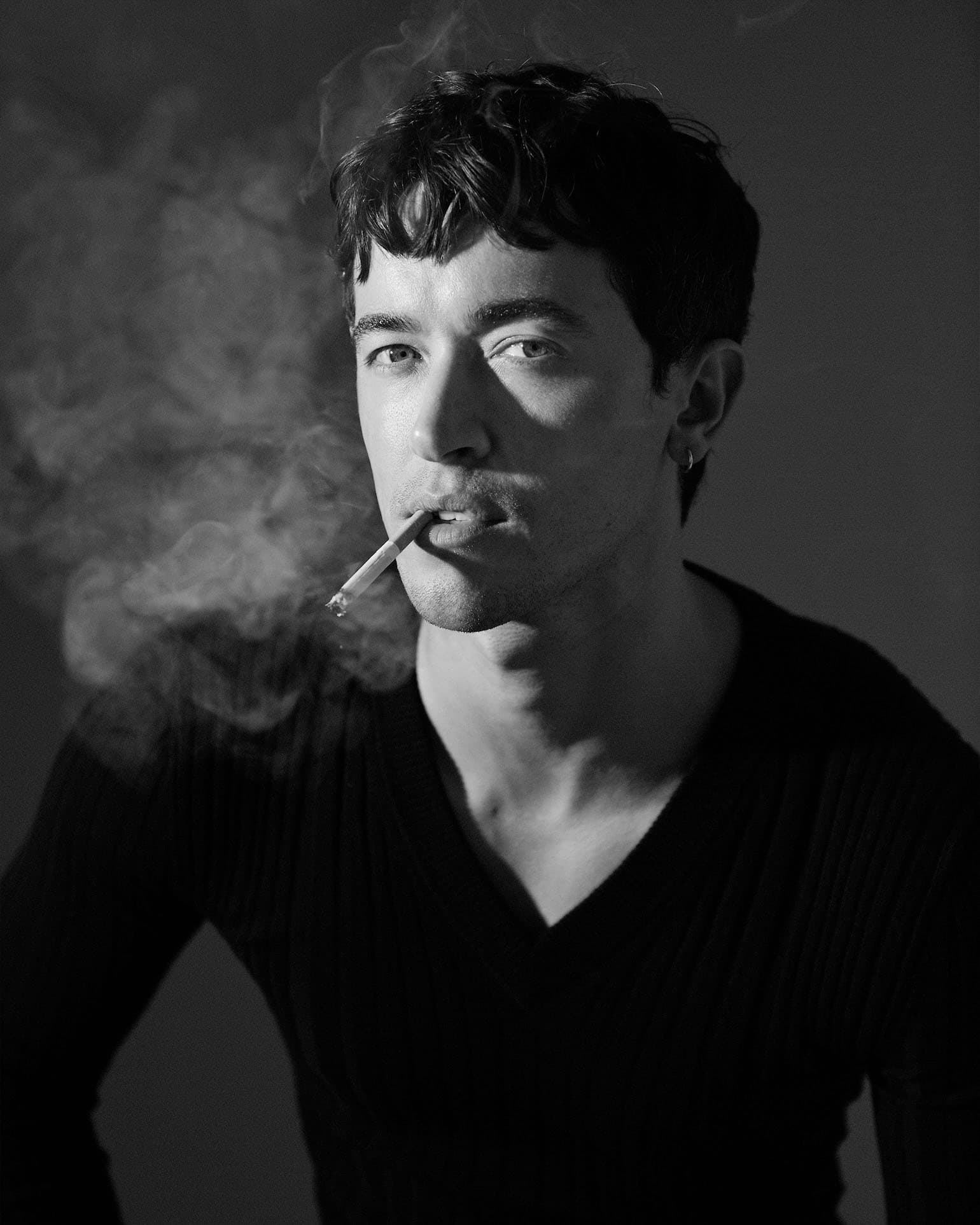
Top, trousers & shoes DOLCE & GABBANA
TB: Yeah. Have we known each other for two years now? We’re fortunate to be with our lovely agent, Olivia Holman, and she introduced us at the National Youth Theatre gala. And we were like, ‘Oh, there’s a kindred spirit.’ And she knew it.
DJ: And isn’t it funny, because are we ever going to tell people why we really get on? I don’t think so. I think that’s our business.
TB: Yeah, the sordid things we talk about after a day at work [laughs].
DJ: Anyway, I knew you before I got the chance to meet you. I’d seen you in The Hunger Games, [directed by] our mutual friend Francis Lawrence, and I remember genuinely being like, ‘Who’s that?’ And then, finding out from Olivia that you’re a real one and that you went to Juilliard, and you live in New York. I was like, ‘And you’re Northern. Who the fuck is this guy?’
TB: Northern and Midlander. I’m a bit of a mutt, really.
DJ: So how’s that journey been, starting from The Hunger Games, or I think your first job was Billy the Kid, right?
TB: Yeah, first proper show. I’ve been trying to work since I was, like, 14. Growing up in Nottingham, I went to this little acting studio called The TV Workshop. You know of it, right?
DJ: It’s renowned. We’re talking Samantha Morton, Jack O’Connell, Joe Dempsey, Toby Kebbell… some of Britain’s finest actors have gone there. But also Shane Meadows – he’d just go and pick kids out.
TB: Yeah. He used to just come in and grab people and put them in his films and TV shows. It was really rough and ready. It was in the basement of this old building in the middle of town. And the guy who ran it, Ian, would just hand out scripts, and we would just get to work. It was so not like drama school. It was basically a bunch of kids who’d probably be out on the streets causing a lot of trouble if they weren’t there on a Friday night. And because of that, it was really raw and very improv-heavy. But I think I also kept looking down to London when I was young and trying to be an actor. I was working as a waiter from the age of 16 to cover my travel to London and Manchester for auditions. I was always looking at London with a bit of envy at kids who grew up there, because I just felt they had more proximity to [the industry]. But that also doesn’t mean that living in London, as you did, means you necessarily have proximity to it, because it’s all about where you grew up, how you grew up, whether your parents did [acting].
I was lucky, because my dad, in the last few years of his life, when I was aged 13 to 14, moved into working in soap [opera] television. He moved from being a journalist for tiny local papers to being a script editor and then a junior producer at ITV for soap. So between the ages of 13 and 14, just as I got interested in film, I got to see my dad start putting his foot into a little bit of television. It was very different to what you and I do now, but still, he was bringing scripts home and reading them over the weekend. And I kind of went, ‘Oh, shit. Well, if you can do it, I’m just going to work my ass off and try to do it.’ I think if it wasn’t for that, I don’t know that I would have thought it was possible.
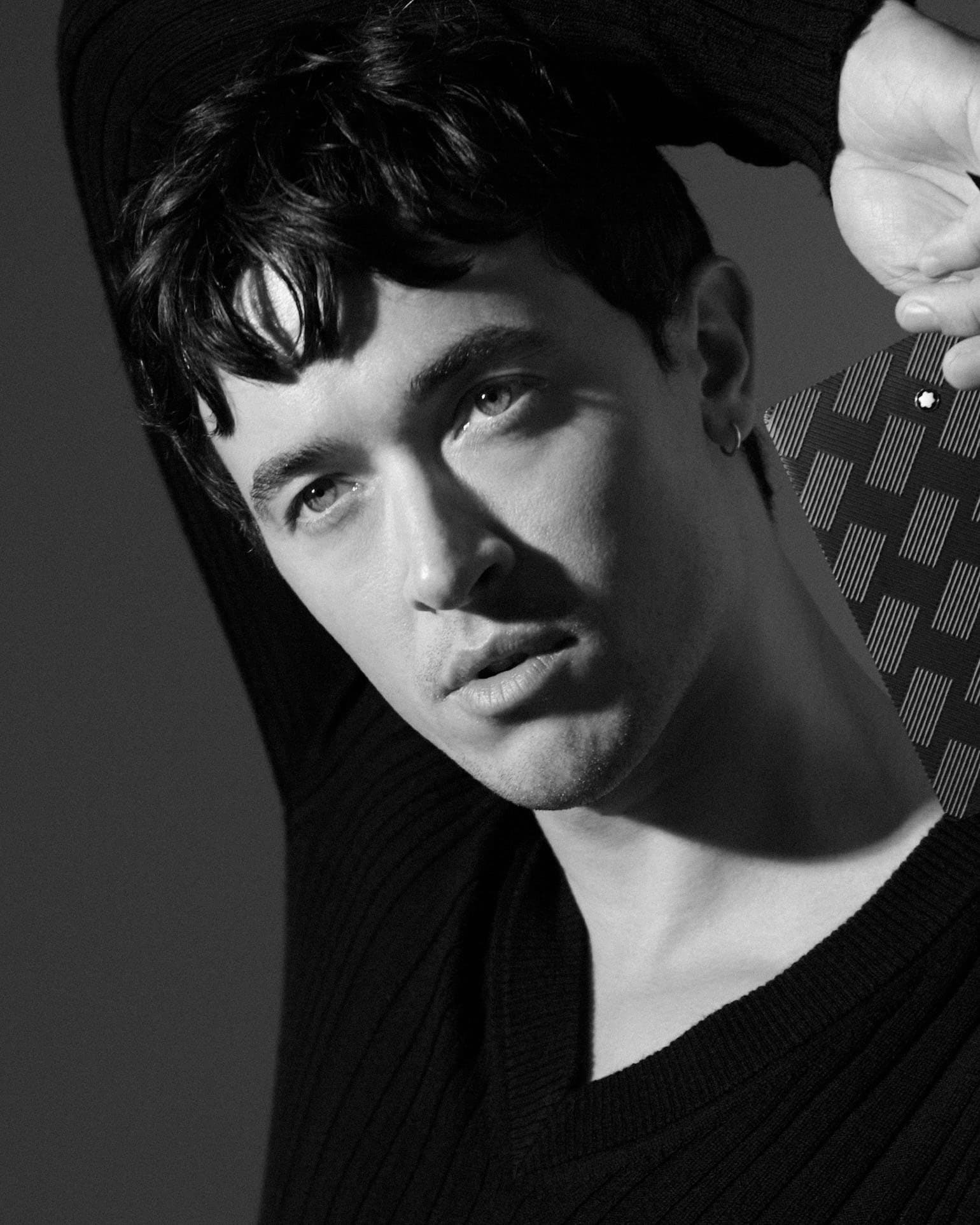
Top, trousers & shoes DOLCE & GABBANA.
DJ: I really do see a lot of parallels in how we found our way into [the industry]. And for the record, you are an incredibly hard worker, and you take nothing for granted. What would you say to that?
TB: It’s funny because I don’t always feel like a hard worker, because I think I’m having fun with it all the time. But then I think back to my first side hustle job at 13 as a paper boy, and I have worked ever since. I always wanted to have my own income so that I could be independent. My mum didn’t have a tonne of money. We weren’t on the breadline, but we didn’t have a lot of spare income. And so I think hard work was drilled into me, because it was like, ‘If you don’t do the work, no one’s going to give it to you.’
And so work became synonymous with chasing that goal. Even a stupid waiter job at a restaurant when I was 16 or 17, I was like, ‘Doing this will allow me to save money for a train ticket to go to London to do that audition, which will then allow me to be an actor.’ And now I’ll happily be working until 4am on a night shoot or reading scripts the night before an audition until whatever time, because it’s all in service of the goal: to be an actor.
DJ: Totally. And then I think that drive, that ‘For the love of…’ is what brought you to New York, right?
TB: You are good at this. Look at you doing little segues. I’m very impressed.
DJ: [Laughs] I’m actually freestyling this, I don’t know what the fuck I’m doing. But talk about what that move was like.
TB: I think when there’s not an immediate road map in front of you, as in when you didn’t go to BRIT School or you didn’t grow up around a bunch of actors, the map becomes just emulating famous actors who you want to be like. I think the reason I went to New York was because it was the year Inside Llewellyn Davis came out, which is one of my favourite films to this day. I’d seen Adam Driver in Girls, then I saw him in that. And I saw Oscar Isaac in A Most Violent Year, and then I saw him in that. And I was like, ‘Oh, my God, where did these guys [train]?’ I knew I wanted to go to drama school because all power to The TV Workshop, but they didn’t, at the time, train you to have longevity and be a transformational actor. I wanted to be a chameleon.
I looked at people like Michael Fassbender and Gary Oldman, and I was like, ‘I think I need to go to drama school.’ And I auditioned, and then realised it was a pipe dream, because they don’t do student loans for international people [in the US]. So I was like, ‘How the hell am I going to fund this?’ I ended up getting a full scholarship, and so it ended up being the more affordable place to go, which was crazy.
DJ: That is wild, man.
TB: And had I not just taken a punt on it, I don’t know where I’d be today.
DJ: I had my stint in New York as well when I was 16. I grew up in East London, got kicked out of school, so I went to another school in West London, and I remember, at the time, even at 16, just being like, ‘God, there’s got to be more.’
TB: I think you and I really have that in common, that ‘There’s got to be more than this.’ Who were your people that you emulated, though? I want to know.
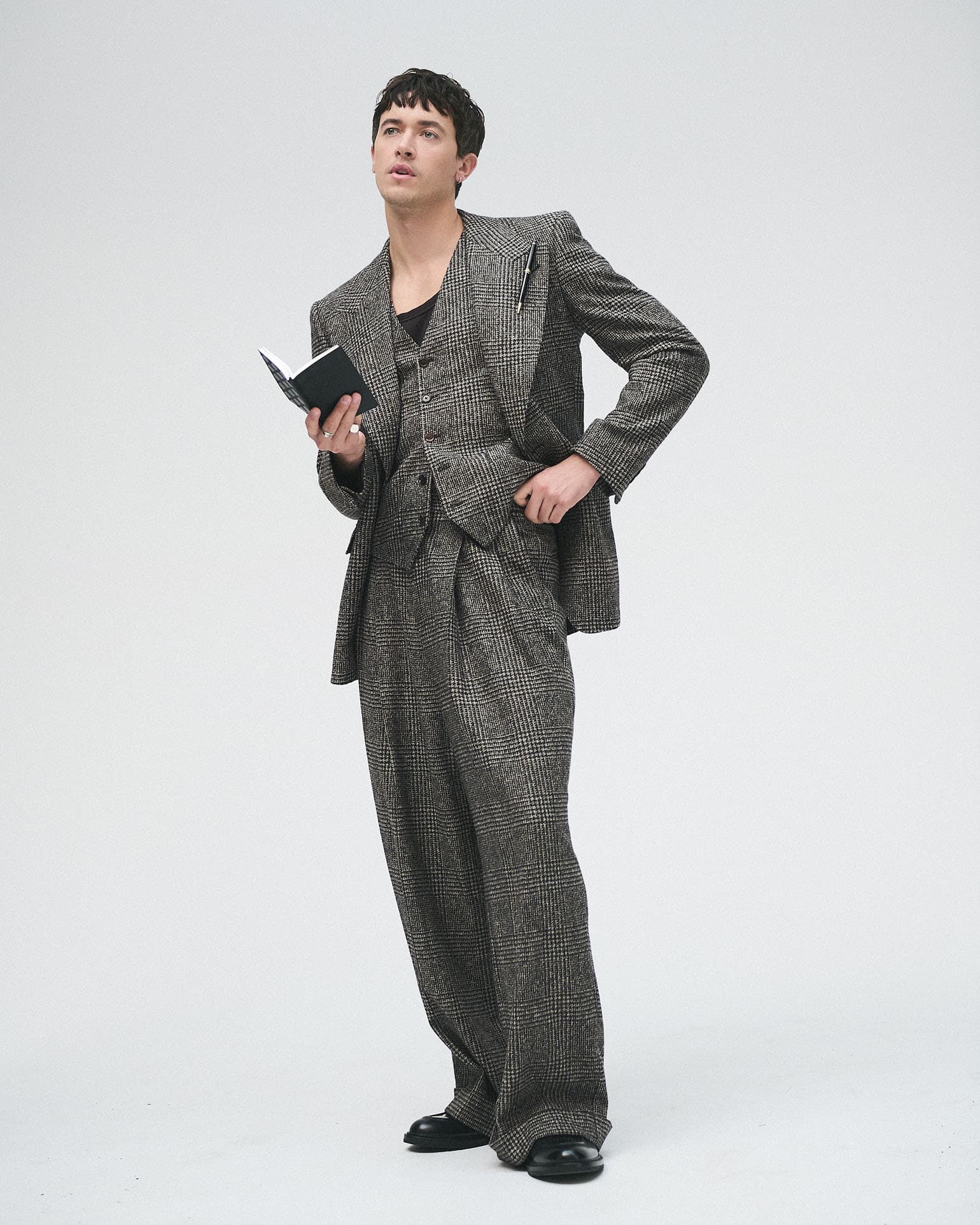
Suit, waistcoat & shoes DOLCE & GABBANA; pen & notebook MONTBLANC
DJ: I think we share quite a few. Gary Oldman was one. I remember looking at people like Chadwick Boseman. His life was so short, but he did the work. I think we’re just coming into that span where we’re in the race. And I remember, for Chadwick, he kind of just got into the race when I just got into acting. And then, before I knew it, he was gone. So there are people like him that I look at. And I ended up going to RADA when I decided to really train, and [Ralph] Fiennes – that level of precision versus the rawness of Gary Oldman – I remember being obsessed with. I looked at the offspring as well, like Tom Hardy.
I remember fixating and staying up so late, googling and going down the Wikipedia rabbit hole, thinking, ‘Did I have to grow up there to do what they’re doing?’ And then you realise – it sounds cliché – but we all have our own path. But when you’re younger, you’re just trying to emulate.
DJ: I always remember this quote from Miles Davis: ‘It takes a long time to play like yourself or to sound like yourself.’ And you’re like, ‘Well, what the fuck were you sounding like the whole time?’ And you realise that obviously you’re just trying to find where you fit.
TB: Yeah, I think it gets easier, in the words of Miles Davis, to sound like yourself or play like yourself, once you’re already on the path. But imagine if you could do that from day one.
DJ: I couldn’t agree with you more. But I think it’s happening [for you]. And I say it’s happening because in my airport delay, I sat and watched Plainclothes.
TB: Oh, mate, thank you for watching it.
DJ: And I thought, ‘Again, Tom.’ I’ve never seen you do the same thing. And you know when an actor is doing something when it elevates the movie that they’re in. And, by the way, that’s a great movie. Carmen Emmi, is that [the director’s] name?
TB: Carmen Emmi, yeah. He’s a first-time director.
DJ: He’s a brilliant first-time director. And Russell Tovey. There were a bunch of great people around you as well, so kudos to them. But, man, I thought you were doing something so gorgeous and slight. How was it to work on that?
TB: It was a really hard one. It was the one I did before we did Wasteman. It was very similar to Wasteman in that it only had 18 shoot days over the course of the month. It was made for like a sub-million-dollar budget. But same with Wasteman, those films you end up playing almost better, because it’s just a real reminder of why we do this in the first place. Everyone’s certainly not there for the payday. They’re not even thinking, ‘Oh, this is going to have a lot of clout, or this is going to go far.’ Because with those films, you genuinely don’t know where they’re going to go. You really are betting on the vision, especially if it’s a first-time director like Carmen or Cal for us.
And yeah, for Lucas, he’s going through it. It’s a romantic or erotic drama, but we’ve been calling it a romantic thriller because it’s really an anxiety-inducing film, because Lucas is closeted, and he’s tasked with entrapping gay men cruising in public for the police force. He’s anxious on every level, and for a month and a half, I was just carrying all this stress and anxiety, and couldn’t sleep. I just felt and looked awful. I actually thought I was doing really bad work. I think because we spend a lot of time as actors trying to let go of tension, and I was carrying all this tension, I thought, ‘Oh, my God, I’m just going to appear really tense on film.’ And then I watched it for the first time, and I was like, ‘Oh, that’s fine. Lucas is in a state of tension. He’s trying to hide how tense he is.’ And it was a real lesson in, ‘It’s not about letting go of all tension. It’s about having it in the right places that reflect the character.’ It was a really beautiful, but hard film to work on. And then I got to come, literally weeks later and jumped into Wasteman, with you, being in a prison cell for a month. It was like the antidote to the stress of playing Lucas in Plainclothes.
DJ: Let’s talk about Wasteman. We had the pleasure of premiering at TIFF last month. We couldn’t have anticipated the reception we had. Because, again, we actually made this tiny movie in this cell, so it felt even tinier.
TB: Again, it’s the little film that could, right? I think it goes back to: you make it with just raw passion and commitment, and then it works.
DJ: And we both know the making of movies is like a miracle. People forget that, but, you know, we both signed on to this project because of the scripts and adoring it, but people forget we only got greenlit, like we only got the money…
TB: I think we got the last half of the budget, or a third of the budget, a week before we started, because Lionsgate came on board.
DJ: Which was so good. But the point I’m trying to make here is that the wonderful producers and Cal were in soft prep [prior to this]. We had Bianca Simone Scott, our makeup designer, Phoebe Platman, who does our set – everyone was in soft prep – basically not being paid to do anything and just genuinely hoping that it was going to happen. And then you had us, the scrappy actors that we are. I was losing weight, you were gaining weight.
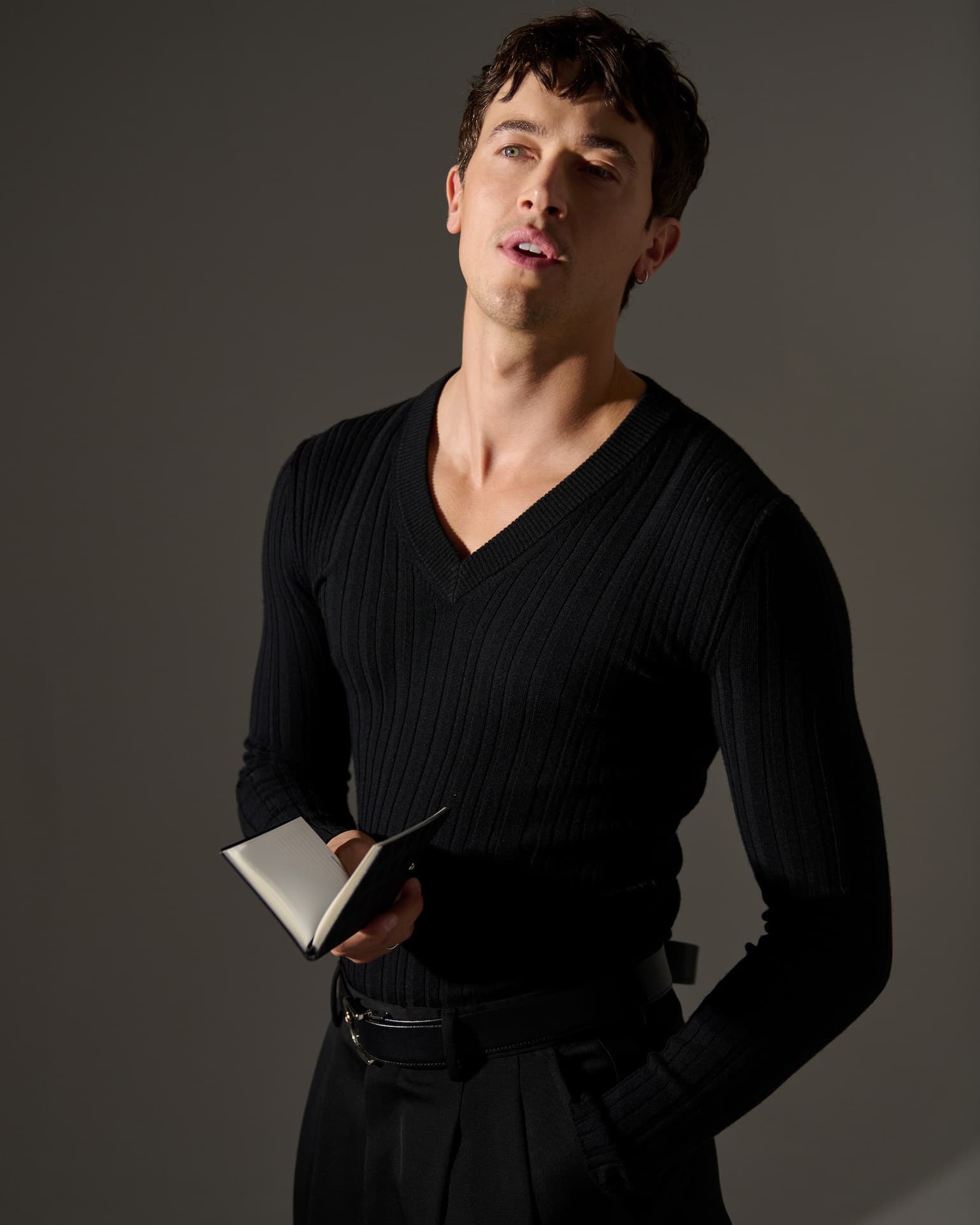
Top, trousers & shoes DOLCE & GABBANA; belt MONTBLANC (also with notebook MONTBLANC)
TB: Desperately, because I had three weeks between Plainclothes and Wasteman to try to pack on a bit of weight, because I was quite slim in Plainclothes. And we wanted Dee to be a more foreboding presence. And so I’m on the phone with Cal a few months before we started, and he was like, ‘We’ll get you a trainer. We’ll get you on a meal plan.’ None of that happened because we didn’t have the time or the budget, so I ended up, about three weeks before we started, realising, ‘Oh, [the film] may or may not happen, but I’ve got to pretend like it’s going to happen and hope for the best.’
It’s funny though because happy accidents happen in these films where you don’t have a tonne of support or finances… Guillermo del Toro talks about this. He always says his favourite time filmmaking was when he had no budget, because it allowed him to think outside the box. And I love hearing someone who’s as creative and visionary as him say that. I didn’t have a trainer. My Wasteman prep was eating burgers, eating salty protein-heavy food, tuna like I would in prison, just yamming it down and doing push-ups. And so I basically went, ‘If I was in a really shit British prison trying to get big and stay healthy, I’d do that.’ And actually, it ended up with Dee having a more realistic physique than some Hollywood version of this movie. I felt strong, but also kind of bloated and a little bit greasy.
DJ: Dee looks like guys that we know, do you know what I mean? I can’t wait for everyone to see how brilliant you are in this film. You brought, on one side of the razor, this fucking horrible, wrongun. And the other side of the razor was something that was wholly raw. How did you enjoy the process of making Wasteman? I think it was 18 days.
TB: Eighteen days, but we were there for a total of a month and a half, which is so short, really. But it was, to this day, my favourite filmmaking experience yet. You know I love working with you. If they let me, I would do every film with you.
DJ: ‘If they let you?’ Who do I need to fight?
TB: Audiences would be like, ‘Not this fucking pair again. Get a fucking room.’ But working opposite you was amazing. Plainclothes felt like such an insular, introspective, very lonely experience – because Lucas is so lonely and isolated in his own mind. So weeks later, to jump into Dee it was such a breath of fresh air. He’s the opposite; he doesn’t have a self-conscious bone in his body. He’s just living and taking up as much space as he can, because that’s how he knows how to not be trodden on. Lucas is trying to disappear into himself so that nobody notices him. And Cal and you and [the producer] Sophia all just gave me the reins and said, ‘We’ll do what we’re doing. You go off the rails if you need to.’ I got to really go there. I want to do more work like that. It just made me go, ‘This is the kind of work that I was watching the likes of Gary Oldman doing in movies when I was younger.’
DJ: I know the work that we put into it – it being Cal’s first feature up against the time, no money. Yet, somehow, I agree with you, it was one of the best experiences I’ve ever had. I think it’s a brilliant movie, and it needs to be made. It’s about prison reform and how we treat and reform prisoners, which, if you like it or not, affects all of us.
The last thing I want to say about you, Tom, is I think that you are one of those rare actors, that I hope to be like as well, who can cross the line between ‘indie’ and ‘big’. And you cross it with such grace. Not everyone can do that, like Wasteman and then just looking into the very near future, you go on holiday – you’re doing a rom-com.
TB: For a second, I thought you were talking about the holiday that you and I are planning, which is also a thing. I won’t tell them where we’re going, don’t worry.
DJ: They’ll find out, I’m sure. But yeah, such a beloved book, being adapted into a movie with Netflix. How does that feel to be able to go from something like Wasteman to that?
TB: With People We Meet on Vacation, I wasn’t looking for it at all. I knew I wanted to do a rom-com at some point because I just wanted to play in every sand pit that was available. But I thought it would be something more like Rye Lane. And I’d done Plainclothes, Wasteman, and then this Watch Dogs film – that’s an adaptation of the game for Ubisoft that I did last year – back to back. In each one, I was playing some sort of psychologically damaged and challenging character, and I said no to People We Meet On Vacation, and then they came back to me just at the right time, just after I finished Watch Dogs. I came back from it going, ‘Oh my God, I just need to take time off from these characters, but also maybe from acting.’ And then [People We Meet on Vacation] came back my way, and I met with the director and thought, ‘Maybe I should just go and do something fun, where the stakes are just falling in love and no one’s dying or being traumatised.’
DJ: And it’s so amazing. I hope you feel how many seeds you’re sowing.
TB: Thanks, mate. Before we wrap up, congrats on The Long Walk, which was released this week. I’m going to go see it tonight.
DJ: Oh, really? You don’t have to…
TB: No, [I’m not just saying] because of this. I texted you yesterday.
DJ: You did.
TB: This is for the reader’s benefit – I’m going tonight. I can’t wait. We should also talk about Francis Lawrence being a mutual director. Because I finished The Hunger Games and met you shortly after. And then, right after Wasteman, you went to work on The Long Walk. How was it working with Franny?
DJ: Oh, Franny. He’s the man. I think for me, he was like, on paper, the most experienced director I’d worked with at that point. And The Long Walk was just his passion project. He gets the best out of young talent. You know what’s amazing? When you’re being directed, and you don’t even feel like you’re being directed. For me, that was Francis.
And obviously, he knew that you’re my mate, so he just kept telling me how great you are. And then I was like, ‘Alright mate, calm down’ [Laughs].
TB: Yeah, ‘This is my time, now.’ You’re like, ‘It’s funny, because you didn’t cast him in The Long Walk’ [laughs]. And you could have, but he’s not here with us, is he?’ I love the man. I really do. And similar to you, he was by far the most experienced director I’d worked with, and probably still is. And he’s just so calm and collected with it. I want to find something to do with you and Francis.
DJ: Oh, dude. Let’s manifest this. What I will say as well about Francis is that he loves the work. And I think Tom, you’re one of those people. You work hard, you do the job, but you also love what you fucking do. And I think that love is what brings love back to you.
TB: Oh mate, thank you. You too.
DJ: Love you, mate.
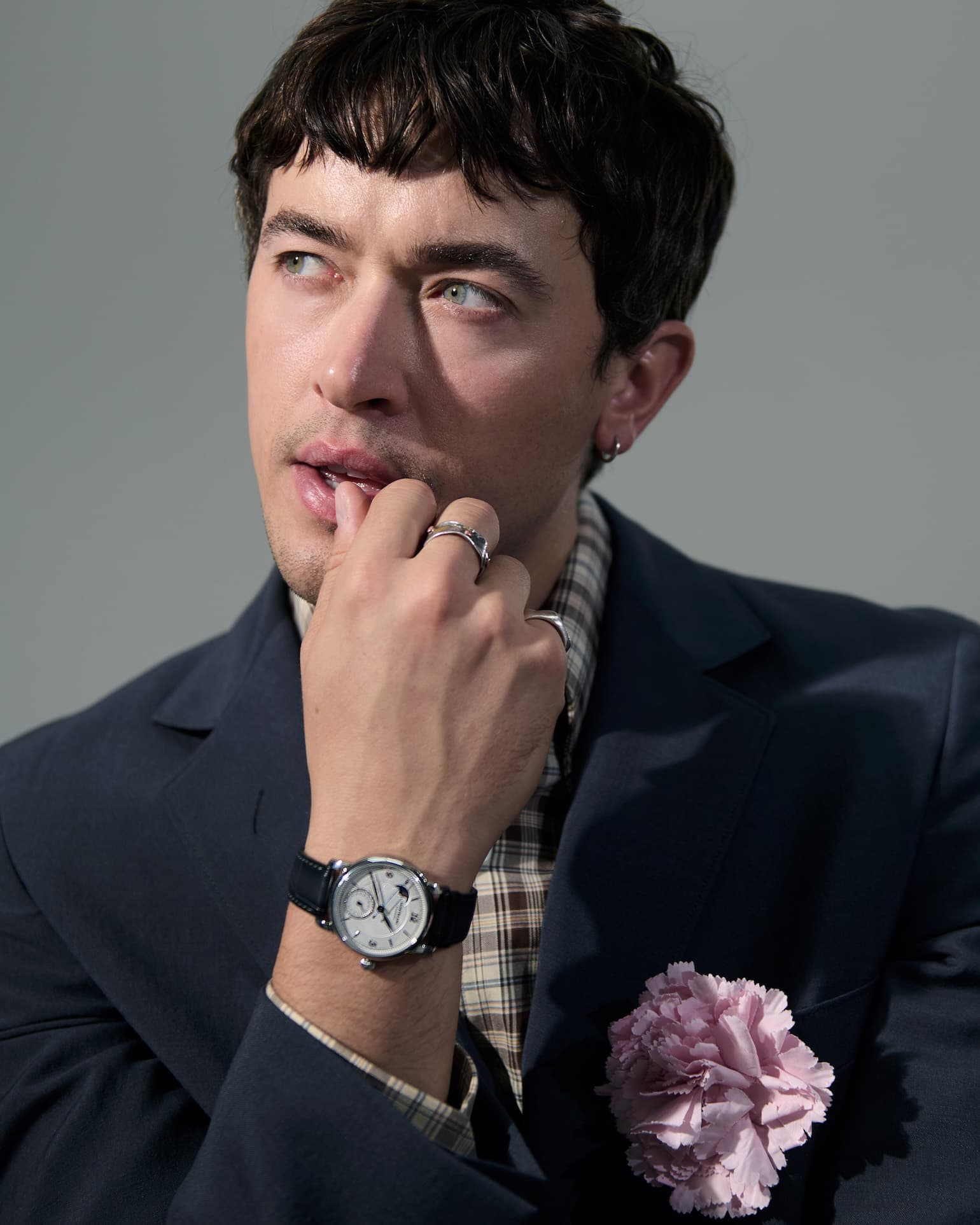
Suit, shirt, shoe & brooch PRADA; watch MONTBLANC
Photography
Jason HetheringtonStyling
Luke DayGrooming
Bjorn Krischker at The Wall Group using ORIBE and Beauty of JoseonPhotography Assistant
Alfie BungayStyling Assistants
Zac Sunman, Nicholas SkeensVideography
David J AdamsEditor-in-Chief
Luke DayArt Director
Michael MortonSenior Editor
Andrew WrightProduction Director
Lola RandallJunior Art Director
Natasha Lesiakowska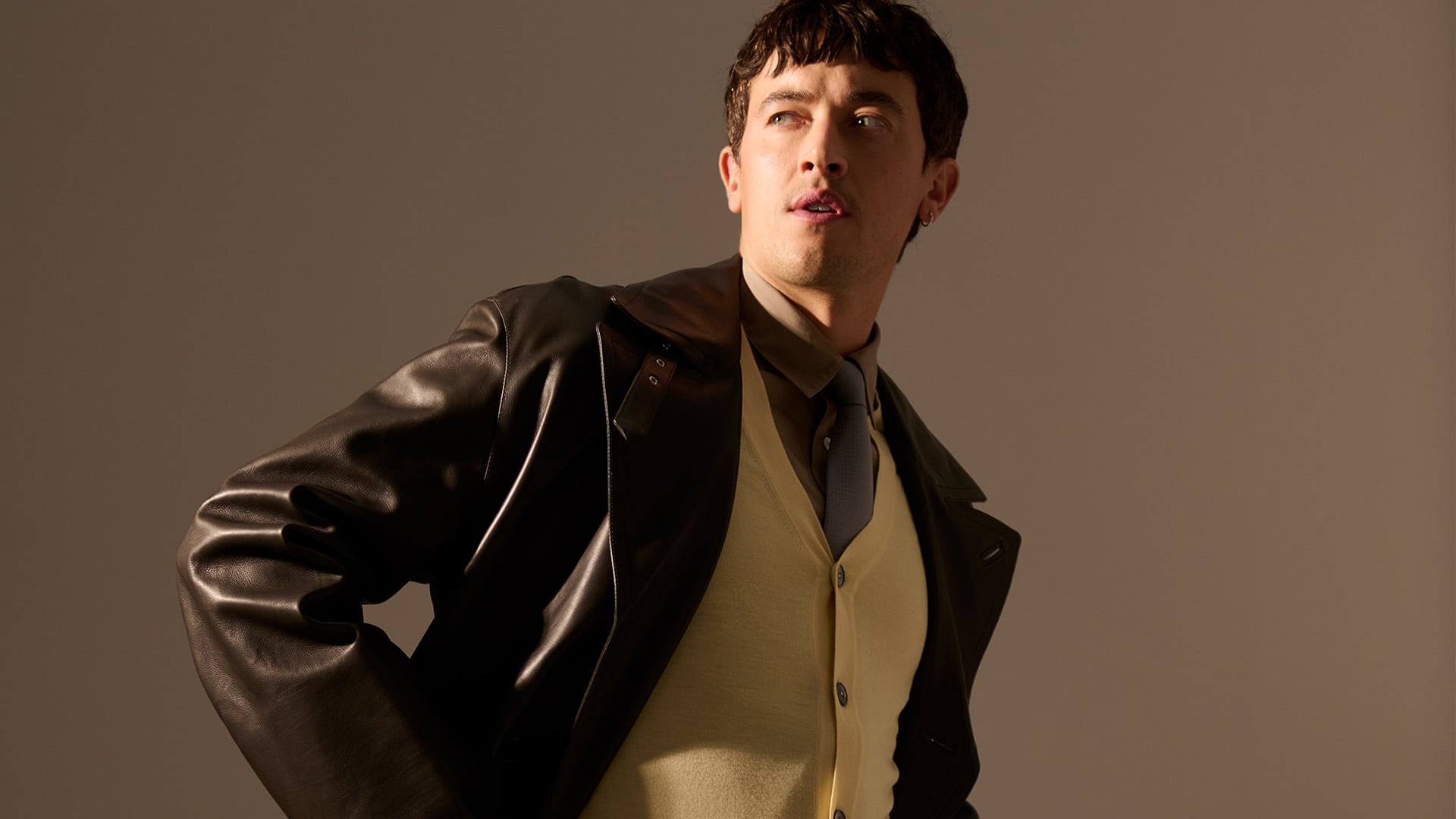
![Picture of “When We Were Developing Series [2], We Were Very Conscious Of The Live Debate About What It Means To Be British”: Tom Hiddleston On The Night Manager’s 2020s Comeback](/_next/image?url=https%3A%2F%2Fadmin.manabouttown.tv%2Fwp-content%2Fuploads%2F2026%2F02%2Fdigsfo-768x338.jpg&w=3840&q=85&dpl=dpl_4oMcmdDAKJ2PWqxnobVp5YpJ1Af3)
![Picture of “[The Bridgerton Press Tour] Is Like Being On Some Sort Of Hallucinogenic Drug”: Luke Thompson Is Next In Line](/_next/image?url=https%3A%2F%2Fadmin.manabouttown.tv%2Fwp-content%2Fuploads%2F2026%2F01%2FLUKE-THOMPSON-hero-768x339.jpg&w=3840&q=85&dpl=dpl_4oMcmdDAKJ2PWqxnobVp5YpJ1Af3)
